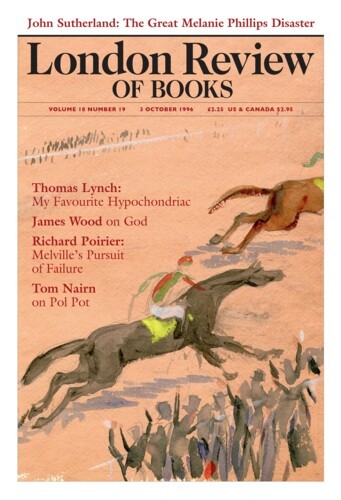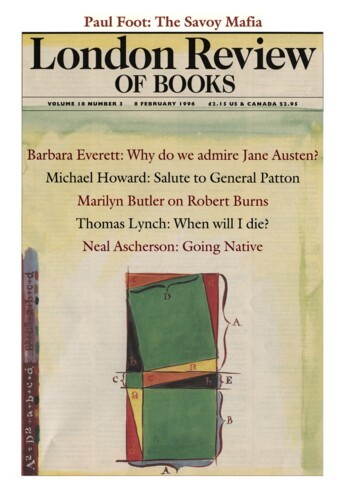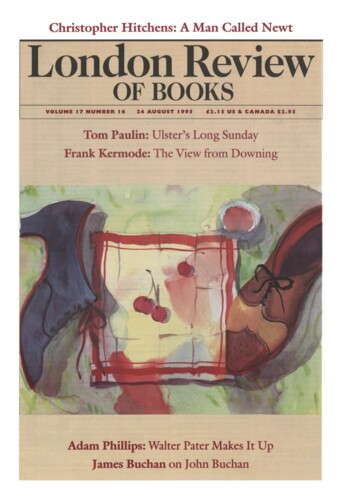Post-Cullodenism
Robert Crawford, 3 October 1996
‘The Romantic awakening dates from the production of Ossian,’ Ezra Pound wrote, and he was right. One of James Macpherson’s great contributions to literature was the use of the fragment. His first Ossianic work, the Fragments of Ancient Poetry, published in Edinburgh in 1760, uses in its title and as its form one of the familiar terms of classical scholarship – the ‘fragmentum’ – and deploys it to give authority to the shattered remnants which he has carried over into English from the post-Culloden smash-up of the Gaelic world. Macpherson’s fragments predate and nourish the use of the fragment form by such Continental writers as Novalis and André Chénier. The fragment is a form which speaks of cultural ruin, and of potential re-assembly. It is central to the development of Romanticism, Modernism and Post-Modernism. Just as the Ossianic fragments are part of the aftermath of Culloden, in our own century the greatest uses of the fragment have come in the work of poets writing in the wake of a war which shattered the civilisation they knew. Pound used the form for much of his career and Eliot shored up fragments against his Waste Land ruins.’’




